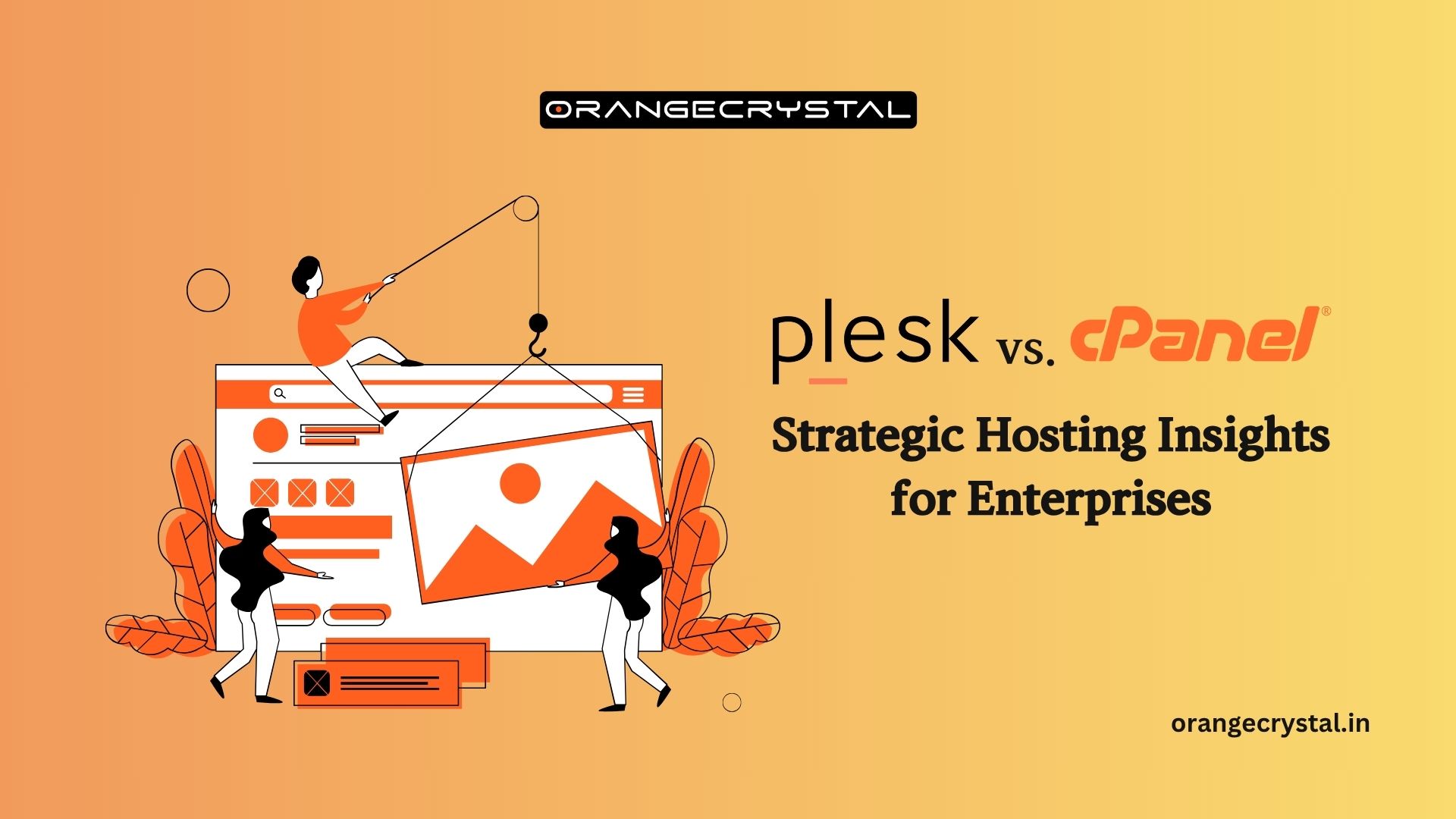Plesk vs. cPanel: The Best Control Panel for Enterprise Private Clouds
As enterprises increasingly migrate to private cloud environments to gain control, compliance, and performance advantages, the need for robust, scalable, and secure web hosting control panels becomes more strategic than ever.
For IT leaders managing complex digital infrastructures, Plesk and cPanel remain the two dominant players in this space. But when it comes to enterprise-grade hosting on private clouds, how do these platforms stack up?
In this article, we dissect the core differences between Plesk and cPanel from an enterprise IT perspective — focusing on security, scalability, integration, and long-term operational value.
Why Control Panels Still Matter in the Enterprise Cloud Era
Even as cloud-native architectures evolve, hosting control panels remain vital for managing:
- Web applications and databases
- SSL/TLS and firewall policies
- Multi-domain configurations
- Access control for distributed teams
- Automated backups and DevOps pipelines
For enterprises running private clouds (e.g., VMware, OpenStack, Nutanix, or on-prem KVM), a control panel like Plesk or cPanel is more than just a UI—it’s a strategic abstraction layer that streamlines IT operations, enforces governance, and reduces operational overhead.
Plesk: A Modern WebOps Platform Built for Flexibility
Plesk has positioned itself as a developer-friendly and cloud-agnostic platform that caters to both traditional sysadmins and DevOps teams. For enterprise environments, key differentiators include:
1. Multi-OS Support
Unlike cPanel, which is Linux-only, Plesk supports both Linux and Windows. This is crucial for enterprises running legacy ASP.NET apps or Windows-based workloads on private clouds.
2. Cloud-Native Readiness
Plesk can be deployed as a containerized application or integrated into cloud orchestration frameworks, making it easier to automate at scale. Native support for Docker, Git, and CI/CD pipelines makes it an ideal choice for DevOps-centric organizations.
3. Security and Compliance
With built-in tools like Fail2Ban, Web Application Firewall (ModSecurity), and Let’s Encrypt integration, Plesk allows IT teams to enforce enterprise-grade security policies out of the box. Role-based access control and multi-user management make it suitable for regulated industries.
4. Centralized Management with Plesk 360
For large enterprises managing multiple private cloud instances, Plesk 360 provides a unified dashboard to monitor and manage all deployments across regions and teams, improving visibility and compliance posture.
5. Application Ecosystem
Plesk’s rich extension catalog allows for easy integration with third-party tools, whether it’s cloud storage (Amazon S3, Azure Blob), monitoring (New Relic, Datadog), or marketing automation platforms.
cPanel: Proven Stability with Focus on Traditional Hosting
cPanel is a time-tested platform best known for its robustness and simplicity, particularly in shared and managed hosting environments. For enterprises, cPanel offers:
1. Mature Feature Set
cPanel’s deep integration with WHM (Web Host Manager) makes it ideal for managing hundreds of domains with granular control. It’s especially beneficial for enterprises with a high volume of web properties.
2. Strong Ecosystem for Linux Workloads
With native support for CentOS, AlmaLinux, and Ubuntu, cPanel works well in Linux-only enterprise stacks. It supports standard tools like Apache, NGINX, MySQL, and Exim, ensuring compatibility with existing IT standards.
3. Ease of Use for Non-Technical Stakeholders
The interface is widely recognized, which reduces training overhead for marketing or business teams that need direct access to manage web assets.
4. Security Tools Built-In
Like Plesk, cPanel comes with robust security features: two-factor authentication, SSL management, IP blocking, and auto-installers for secure CMS deployment.
Key Considerations for Enterprise Private Cloud Deployments
When comparing Plesk and cPanel in the context of enterprise private cloud environments, consider the following:
Interoperability with Existing Systems
- Plesk integrates more seamlessly into heterogeneous environments where Windows and Linux coexist.
- cPanel may be preferable in standardized Linux-first infrastructures with predictable workloads.
Scalability and Automation
- Enterprises adopting Infrastructure-as-Code (IaC) or DevOps automation may find Plesk more adaptable due to its CLI, REST APIs, and container support.
- cPanel’s automation is solid but more aligned with traditional hosting models rather than dynamic infrastructure.
Security and Regulatory Requirements
- Plesk’s advanced access controls, user roles, and centralized management appeal to IT teams in finance, healthcare, and government.
- cPanel supports compliance too but may require additional configuration and external tooling.
Cost and ROI
- While both panels come with licensing costs, Plesk’s ROI can be higher in environments where automation, Windows workloads, or DevOps integration reduces manpower and downtime.
- For enterprises with straightforward hosting needs, cPanel may offer a lower TCO in tightly controlled Linux-only setups.
Real-World Enterprise Use Cases
- Global Retail Chain: Deployed Plesk on an OpenStack private cloud to manage over 700 microsites with automated SSL, backups, and user delegation across teams.
- Banking Institution: Chose cPanel on hardened Linux VMs for internal portal hosting, valuing its proven security and ease of administration.
- SaaS Provider: Leveraged Plesk’s Docker integration to host customer-facing applications, reducing release cycles by 30% via Git-based deployment.
Final Verdict: Which Control Panel is Right for Your Enterprise?
Both Plesk and cPanel are capable platforms, but your enterprise priorities will determine the right fit.
Choose Plesk if you need:
- Cross-platform support (Linux + Windows)
- DevOps and container integration
- Centralized multi-server management
- Flexible automation and extensibility
Choose cPanel if you:
- Operate in a Linux-only environment
- Require a proven, simplified hosting interface
- Have a high volume of static or semi-dynamic websites
- Need a familiar UI for non-technical users
Ready to Make the Right Choice for Your Cloud Hosting Strategy?
Every enterprise is unique. Whether you’re consolidating web operations, modernizing legacy infrastructure, or scaling your DevOps pipeline, choosing the right control panel is a strategic decision that impacts security, efficiency, and long-term ROI.
Talk to our in-house experts today to get tailored guidance on deploying Plesk or cPanel within your private cloud environment. We’ll help you align the right tools with your infrastructure strategy and business goals. Contact us now for a personalized consultation.



Leave a Reply